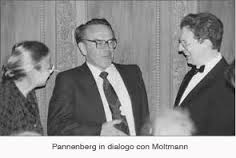Schleiermacher: The Christian Faith 20-31
The Christian Faith, Sections 20-31
In these sections, Schleiermacher
will discuss his view of the method of dogmatics. We can see the Christ
centered approach to theology when he says that we can define orthodoxy as
adherence to the essence of Christianity, Jesus the Redeemer. Properly
understood, I think most people who are Christians would agree with this. He
has kept it simple. He also defends the idea that theologians will have their
individuality in how they reflect upon these matters, something for which I
hope we will have respect as well.[1]
We need to have a degree of generosity as theologians work through the
difficult matters of their task.
What
do you think keeps one within the thought of Christianity? I might suggest a
simple statement in Acts 2:42: “They devoted themselves to the apostles’
teaching and fellowship, to the breaking of bread and the prayers.” The value
of what Schleiermacher identifies as the essence of Christianity is also the
heart of apostolic teaching, the experience of Christ-centered fellowship,
Eucharist, and prayer in the name of Jesus. We can also see this center in the
formation of the early creeds. These creeds are Trinitarian, but they also
center on who Jesus is for Christians.
I
find it interesting that Schleiermacher will identify three forms that dogmatic
statements will make. One will involve descriptions of the self, another are
conceptions of God, and another are utterances about the world. This three-fold
breakdown of dogmatic statements will give the entire work an anthropological
cast. We might even see here concealed a Trinitarian structure. If so, the Son
corresponds to the self, the Father to conceptions of God, and the Spirit to
the world.[2]
We can again see how deeply Schleiermacher is already working on his theology
in these opening portions of his exposition of Christian teaching.
I
would want to clarify the meaning of the feeling for absolute dependence of
which Schleiermacher writes toward the end of these sections. He is inviting us
to consider whether we have the experience of our finitude in such a way that,
far from being isolated fragments, we have awareness of our connection to and
reliance upon the whole. “Dependence” is another way of thinking of the human
being is “open” to the whole, of which the individual is only a part. He is not
arguing that we are dependent in contrast to independent and free. He is
arguing that finite individuals have the shared experience of connectedness or
openness to a much larger whole. He will call this whole the Infinite. Such thinking
already reflects theological influence.[3]
Yet, in his effort to define religion, he is separating feeling on the one hand
and the whole on the other from the notion of the divine, opening us to the
possibility that the experience is primarily aesthetic and/or emotional.[4]
He moved theology away from “natural theology,” replacing such considerations
with some reflection on the philosophy of religion necessary for systematic
theology.[5]
The challenge he has set before theologians is this. If the philosophy of
religion is in some way the door to the house a theologian is constructing, how
much does the door shape the house?[6]
If it does so too much, then human experience will shape the contents of
Christian teaching. It would disregard the historical event that gave rise to
the faith of the church, Jesus of Nazareth.
In a further
clarification, religion is not a symptom of weakness. We cannot locate religion
as one psychological function among others. He is certainly not banishing
religion to a non-rational corner of subjective emotions so that we can free
thinking from the interference of religion. Sadly, some of successors took him
this direction.[7] Tillich
will suggest that Schleiermacher is saying something similar to what Tillich
means by an ultimate concern about the ground and meaning of our being.[8]
Thus, when Peter Hodgson says he prefers to think of the human relationship to
God as a form of radical openness rather than radical dependence, I am not so
sure Schleiermacher would mind. Dependence can cast the discussion of the human
and divine relation in terms of human submission, passivity, and obedience. It can
suggest that God is a lord and master in a negative sense. Openness casts the
relationship in terms of human liberation, activity, and responsibility. Openness
casts the relationship in terms of freedom rather than dependence.[9]
[1]
Pannenberg, Systematic Theology Volume
III, 100.
[2] Peter
Hodgson, Winds of the Spirit, 372.
[3] Tillich,
Systematic Theology Volume I, 9.
[4] Tillich,
Systematic Theology Volume I, 215.
[5] Tillich,
Systematic Theology, Volume I, 30.
[6] Tillich,
Systematic Theology Volume II, 14.
[7] Tillich,
Systematic Theology Volume I, 15,
153.
[8] Tillich,
Systematic Theology Volume I, 42.
[9] Peter
Hodgson, Winds of the Spirit, 208.




As people in the Wesleyan Tradition we can chalk up a sense of being finite in the presence of the Infinite to prevenient grace. We are, in a sense, remarkably close to Schleiermacher. And yet, words are everything. Our notion of prevenient grace is wholly dependent on the grace of Jesus Christ. Any quickening of our sense of need or dependence must be attributable to grace, to an act of God and not to a naturally available condition. Schleiermacher's effort remains a noble one, but it remains one that I still resist, in this respect more than almost any other.
ReplyDelete